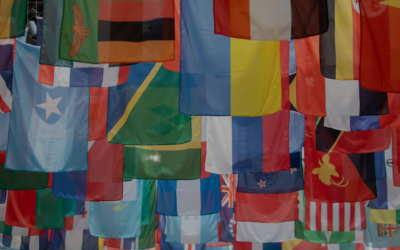It is a truism to state that the war launched by Russia against Ukraine in late February breaches many foundational rules of international law ranging from the prohibition on the use of force and the principle of territorial integrity to the right of the Ukrainian people to self-determination. The sense of outrage that the war has triggered in most parts of the world is a testimony to the importance of the rules at stake. Meanwhile, the justifications advanced by Russia have no basis in international law. The right to self-defense could not be plausibly invoked in the absence of any actual or imminent attack from Ukraine, the alleged invitation from the puppet entities created by Russia on the Ukrainian territory cannot be taken seriously and the allegation that a genocide was being committed in Ukraine is simply a shameless attempt to give the Russian invasion the appearance of a humanitarian intervention without any factual basis.
What does this episode tell us about international law?
It would be tempting to conclude as the editorial in a British newspaper did in connection with the invasion of Iraq in 2003, that international law ‘is almost entirely bogus’ and that ‘the whole issue of “international legality” is a gigantic irrelevance’. That temptation should, however, be resisted for many reasons. The standard response in the discipline is that serious breaches of international law should not make us lose sight of the fact that international law is not only about dramatic events such as conflicts and wars, but also or even primarily about international transactions in various areas such as diplomatic and consular relations, trade, investments, telecommunications, and air traffic. The high level of compliance with international law in those areas shows, the standard response contends, that the international legal system generally works. As Stanley Hoffmann insightfully observed, however, ‘a legal system that breaks down in the area of greatest importance for its subjects is like a house without foundations.’ It is little consolation for a state that fears an aggression from another state to know that agreements about the sale and purchase of cotton or wheat are dutifully respected.
A better response should thus address the ‘dramatic’ examples of breaches of international law seriously. It is important to clarify that a breach of law, however serious, cannot be a ground for dismissing the entire legal system concerned as such. The fact that many crimes remain unresolved in domestic laws is rarely taken as a sufficient justification for discrediting those laws. But given the limited number of actors operating on the international scene and the high visibility of ‘dramatic’ breaches of international law in the age of Internet and social media, the likelihood of ‘unresolved’ breaches of that kind is very limited: if international law were a crime novel, ‘whodunit’ would rarely be a relevant question, since we almost always know who committed the crime in situations involving dramatic breaches of international law. What is important in such situations is not simply the breaches of international law, but also the reactions to those breaches.
On this score, the invasion of Ukraine offers a remarkable example: not a single state in the world publicly supported the Russian intervention, the overwhelming majority of the international community condemned the aggression committed by Russia in a UN General Assembly Resolution adopted on 2 March. Numerous countries, acting unilaterally or collectively, have issued serious economic sanctions against Russia, many private companies have suspended their operations in Russia and Russia has been excluded from the world’s major sporting events. Russia is now as close as it gets to a pariah state and it is hard to believe that this is not a significant cost. It is remarkable to witness such a level of cohesion in a decentralised system such as international law.
Informal mechanism of protection
International law also offers some ex ante mechanisms of protection. For instance, it is a sign of good citizenship in the international community for every state to offer justifications for its actions. When those actions seem to contradict common understanding of international law, the justifications are expected to be highly plausible. But because international law is not infinitely malleable, plausible justifications available in any given circumstance are not unlimited (Louis Henkin) and the fear of shame and ridicule may be enough to deter states that care about their reputation from openly defying the authority of international law.
An informal mechanism such as this one would, however, be less efficient if serious breaches of international law are not treated alike. States are likely to lose the moral high ground when they do not react to similar breaches of international law with the same strength and determination. While it is true that two wrongs do not make a right, we should not forget that for every invasion of Ukraine, there is the episode of the 2003 invasion of Iraq by the coalition led by the United States and the United Kingdom and that for every euphemism ‘special military operation’ used as a substitute for war, there is the concept of ‘enhanced interrogation technique’ used by the United States in Guantanamo to normalise torture. ‘Quod licet Iovi, non licet bovi’ is among the worst enemies of international law whose efficiency largely depends on its being perceived as a set of legitimate and even-handed rules and principles.
Fuad Zarbiyev
Associate Professor in International Law and Co-Director of the LL.M. in International law at the Graduate Institute Geneva









0 Comments